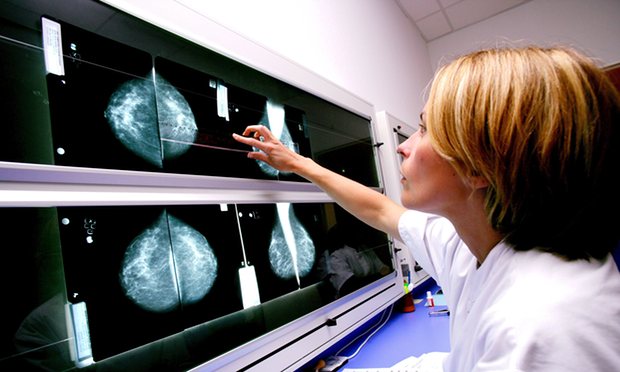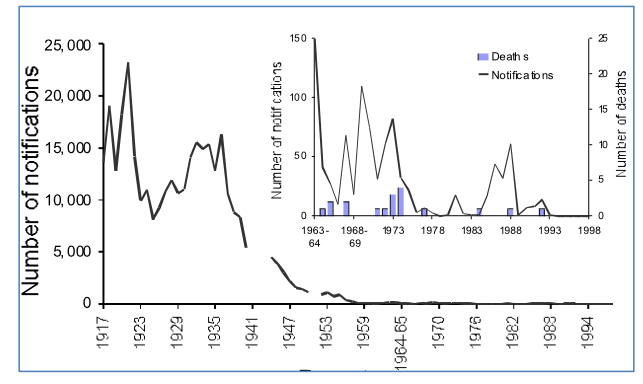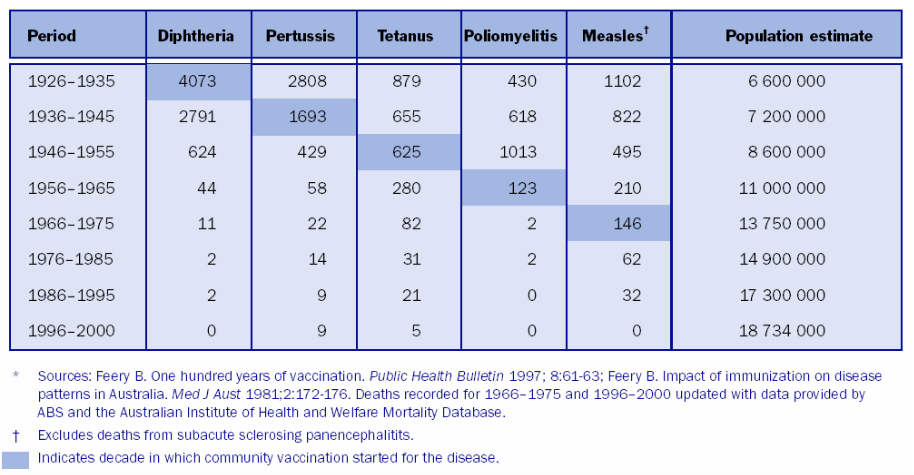Preventative medical approaches are different from general preventative approaches, such as eating a healthy diet or doing physical activity. Preventative medical approaches are approaches that involve drugs and technology to help to prevent health issues. Such approaches to health promotion are often debated, especially among those who promote a more natural approach to health.
Childhood Immunisation
One of the preventative medical approaches to health promotion is childhood immunisation. Australia has a national childhood immunisation program, which mostly focuses on vaccines, though other immunisation approaches such as Homœoprophylaxis do exist.
Vaccines are a preventative medical approach to health promotion because it seeks to prevent ill health. Vaccines contain dead or synthetic versions of particular viruses and seek to stimulate the immune system to respond to these cells as though they were the actual virus. The result is that the immune system remembers the disease when the person is actually exposed to it, meaning a faster response and the disease being defeated before it gets a chance to cause sickness.
The first mass vaccination program in Australia was for Diphtheria. The Royal Colleges of Pathologists of Australia report that this vaccine helped to reduce the number of reported cases and the number of deaths from Diphtheria fell from 4000 to 44 over 40 years (1926-1965).
Diphtheria notifications (1917-99) & deaths (1963-98) in Australia (from Gidding et al.1).
Other immunisation programs were also introduced and now we vaccinate against a large array of diseases. The table below indicates some of the statistical data from before and after these programs and vaccines were introduced.
Of course it is hard to attribute this drop entirely to the introduction of vaccines. Between 1926 and 1935 there is actually a rise in the number of deaths from Diphtheria, and many other changes across the country were happening, including improvements in sanitation, nutrition and medical care. Other key global events also affect the death rates from such diseases, such as Wars (WWII 1939-1945), economic developments (great depression 1930s) and much more.
This is not to say that vaccinations did not contribute, or that they did not contribute in a large way. But it is important to think critically when looking at statistical data. The national immunisation strategy can be found here.
It should also be noted that there are some who chose not to vaccinate their children for a variety of reasons. Some attribute the drop in disease to other changes rather than vaccines, some identify the chemical make up of vaccines (which have many chemicals other than dead cells in them) as dangerous and worry about the side effects, and others believe there is a connection between vaccines and other diseases (such as autism and cancer).
Cancer Screening
Cancer screening in no way prevents the disease from beginning, however it does help to prevent mortality and morbidity as a result of the disease. Cancer screening is an early detection approach to health promotion. It aims to identify the cancer early so that successful treatment of the disease is more likely.
The common treatments for cancer are often chemotherapy, radiation therapy or surgery. Chemotherapy works by killing cells as they reproduce. Our entire body reproduces itself over time, but cancer cells reproduce more rapidly than most normal body cells. The chemotherapy is used until the cancer dies or until it is likely that the person will die with continued use. As such, chemotherapy is more successful in treatment when the cancer is found early, when it is still small and therefore is killed faster by chemotherapy.
It is a similar story for radio therapy and surgery. Where the smaller the cancer the more effective and less risky the treatments. This is why early detection through cancer screening is vital in the fight against cancer.
Determine the effectiveness of a range of health promotion strategies relevant to young people
In order to determine the effectiveness of preventative medical promotion it is important to be critical of the evidence provided. You should also seek to find data and evidence that shows a direct link between the preventative medical approach and improved health outcomes related to the approach. For immunisations you can begin here.
It should also be noted that something like cancer screening will increase the number of newly diagnosed cases (incidence), and hopefully also result in better survival rates (as is found with cancer see here).
Resources
[1] https://www.rcpa.edu.au/getattachment/72fd414e-8e44-40ec-bea2-19d2a52e2a2f/Immunisation-and-Vaccine-Preventable-Diseases.aspx


